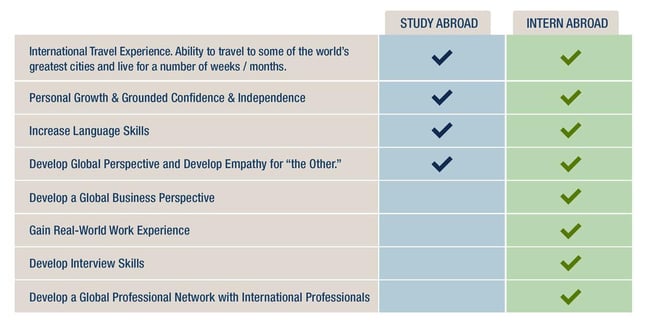Advising for an international experience is not always easy. While most study abroad advisors are confident with tips on academic credit, living abroad, succeeding in another culture, and how to choose a program, they may not be ready for working with a student seeking a professional experience abroad.
When advising for an international internship program, advisors will need to look at the combination of coursework, resume, and connecting majors, experience, and career fields. Successful advisors will create the right expectations while helping students easily navigate the application process. Tricky, but not impossible.
This summer the GE University Relations team has answered this challenge by working with partner universities, such as Fairfield University, Texas A&M, Marymount, and Towson to develop our University Advisor Training. This specialized professional training is now being offered to all GE’s partner institutions along with an online portal of on-demand resources and trainings.
Below are the top five key steps for advising on international internships that you can put into action this semester.
1. Start with the Outcomes

Work backward from the ideal internship to manage expectations. Many students are familiar with applying for a domestic job or internship where they can read a job description and learn all about the company, but internships abroad are different. Global Experiences customizes its placements around the student’s goals and strengths, rather than have the student choose from something that is pre-determined.
This means your early conversations about an internship are a discovery process. By pointing out the key aspects of a full-time work experience, you are asking the student to think more concretely about what they will be doing in their everyday work. An internship abroad is an opportunity for skill development, personal discovery, and global understanding, rather than a name brand company to add to a resume. So step one for an advisor is to ensure expectations are aligned with what is possible.
2. Build the Bridge from Classroom to Career

When working with students who are considering an internship, you’ll take a close look not only at their past work experiences, but also their coursework. If a student is majoring in Journalism, but is also a passionate student athlete, your conversations should encourage them to see some broader connections between the academic, the personal, and the professional. Encourage the student to work not only with you, but with their academic advisor, or the campus career center, to further refine what they need and want in an internship. Can the Journalism department offer credit for an internship abroad? While many internships can be credit or non-credit bearing, it is important for the student to make the distinction if they want the experience on both their resume and their transcript.
3. Separate study and work
Articulate the difference between coursework abroad and full-time international work experience. Many students who are considering an international internship may have studied abroad or are already familiar with traveling. It’s a good idea to outline the differences between these experiences so the student is clear on the expectations. This could include: a full-time work schedule, working toward deadlines, with a team or individually, and answering to a supervisor who will ultimately evaluate their work and write a recommendation letter.

4. Reiterate the Value of an Open Mind
Now that the student is fine-tuning their hopes and dreams for an international internship, remind them to remain flexible and open. Career fields can be competitive and it’s a good idea to coach your student to consider all possible options they might be offered. For example, be open to a small or medium enterprise; consider not only work that is familiar, but also new opportunities; and think about the career field in broad terms (Environmental Science) instead of narrow ones (Corporate Industrial Environmental Responsibility.)
5. Underscore the Relationship of an Internship to the Future

Students collect experiences while at university; we’ve been suggesting they do so since elementary school! Service learning, study abroad, work experience, or playing a sport are all valuable facets in an undergraduate career. An internship (particularly an international one) will allow for a student to build their skills in a brand new environment.
We know from recent studies that employers are looking for problem solvers, critical thinkers, and new hires that have had hands-on learning opportunities with individuals who are not like them. A student’s skills, confidence, and network will grow exponentially with international internship experience.
We hope these tips will be helpful as you head into a new semester of advising students on international internships!






















